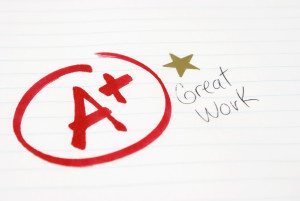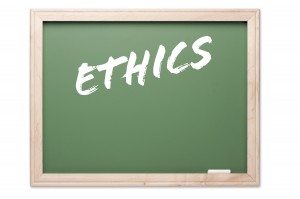 Mark H. Allenbaugh, a former award-winning Adjunct Professor on Ethics in Business and the Professions at the George Washington University, was suspended for two years from practice before the United States Patent and Trademark Office.
Mark H. Allenbaugh, a former award-winning Adjunct Professor on Ethics in Business and the Professions at the George Washington University, was suspended for two years from practice before the United States Patent and Trademark Office.
The suspension came as a result of a reciprocal disciplinary proceeding commenced by the Office of Enrollment and Discipline after the OED learned that Mr. Allenbaugh had been suspended for two years from practice before the U.S. Court of Appeals for the Fourth Circuit.
According to the USPTO’s Order of Suspension, on September 11, 2014, Allenbaugh was suspended by the Fourth Circuit for failing to represent his client with reasonable diligence when he neglected to comply with repeated orders of the Circuit Court to file a brief and appendix. In addition, the USPTO’s suspension order stated that Allenbaugh failed to file a response to a show cause order, in violation of Virginia State Bar Professional Guidelines.
According to FindLaw, Allenbaugh was an accomplished criminal lawyer who has published numerous articles in the field of criminal law and sentencing. Prior to entering private practice, Mr. Allenbaugh was a Staff Attorney for the U.S. Sentencing Commission and taught ethics as an adjunct professor in the Department of Philosophy at GWU, where he was honored in 2003 with the Bender Teaching Award.
 As a consequence of the Fourth Circuit’s suspension, the Director of the USPTO’s Office of Enrollment and Discipline filed with the USPTO Director a complaint for reciprocal discipline and an order to show cause as to why Allenbaugh should not receive the same two-year suspension that was imposed by the Court of Appeals.
As a consequence of the Fourth Circuit’s suspension, the Director of the USPTO’s Office of Enrollment and Discipline filed with the USPTO Director a complaint for reciprocal discipline and an order to show cause as to why Allenbaugh should not receive the same two-year suspension that was imposed by the Court of Appeals.
As has been discussed in our prior blog post on IP Watchdog, the USPTO Director is required to impose the same discipline imposed by another jurisdiction, and has no discretion not to impose the identical sanction, unless the practitioner submits evidence establishing a disputed issue of fact that the practitioner was denied due process, the imposition of identical discipline would result in a grave injustice, or the prior proceeding suffered from an infirmity of proof. Allenbaugh was afforded the opportunity to present such evidence to the USPTO Director but, according to the Suspension Order, failed to respond, thus resulting in a two-year suspension from practice before the Office.
It is important to note that Allenbaugh’s suspension from the USPTO had nothing whatsoever to do with the practice of law before the Office. Every jurisdiction in the United States, including every state and federal court as well as the USPTO, has rules of “reciprocal” discipline. The way the rules of reciprocity work are generally quite simple. After one jurisdiction imposes public discipline, the disciplined practitioner is normally subject to the identical discipline in all other bars in which he or she is a member, subject to the practitioner demonstrating some extreme or unusual circumstances warranting a different disciplinary sanction.